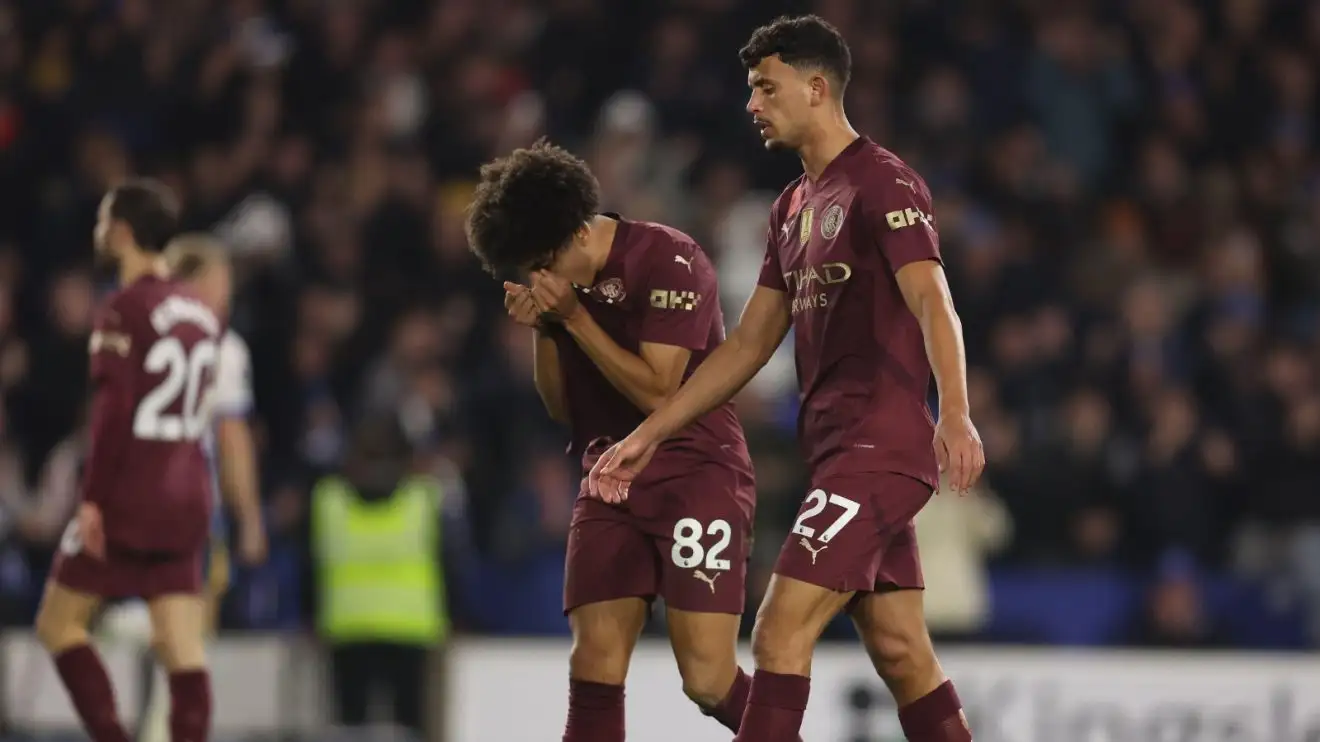
Manchester City find themselves in an unexpected and alarming crisis after suffering their fourth consecutive defeat, leaving fans and pundits alike questioning the future of Pep Guardiola at the helm. The reigning champions’ once seemingly invincible form has crumbled, and even their legendary manager must be wondering how it all came to this and whether he has the appetite to endure what lies ahead.
Saturday’s match against Brighton was expected to be a chance for City to steady their shaky form, but instead, it served as a glaring reminder of their current struggles. The game initially showed promise thanks to a flash of brilliance from Mateo Kovacic. His ability to read and intercept Brighton’s counter-attack evoked memories of Rodri, while his quick movement past defenders in midfield was reminiscent of Phil Foden at his peak. Kovacic’s pinpoint pass to Erling Haaland was a work of art—Kevin De Bruyne himself would have applauded it. Haaland, with his trademark power and precision, muscled through Brighton’s defenders and forced the ball past Bart Verbruggen, slotting it into the net under heavy pressure from Jan Paul van Hecke.
City seemed in control, and Haaland even had further chances to extend their lead, with one ferocious shot rattling the post. Young Savinho, deputizing on the right wing, displayed impressive skill reminiscent of Riyad Mahrez, but his finishing lacked the clinical edge of the Algerian, leaving City unable to capitalize on their lead.
The first half ended with City holding a slender advantage, but appearances were deceiving. Brighton, led by Fabian Hurzeler, were merely biding their time. The introduction of substitutes Carlos Baleba, Joao Pedro, and Matt O’Riley injected new energy and exposed City’s vulnerabilities. City’s defensive frailties came to light in the equalizer, with a well-placed cross finding Kaoru Mitoma in space on the left flank. Danny Welbeck’s miscontrol in the box should have been easily cleared by one of City’s three defenders, but instead, confusion reigned. Pedro capitalized on the chaos, muscling through to bobble a shot over Ederson—a moment emblematic of City’s current malaise.
Pedro was not done yet. Shortly after the equalizer, he combined effortlessly with Baleba and Welbeck before finding Matt O’Riley, who coolly slotted the ball past Ederson for Brighton’s second. For O’Riley, marking his Premier League debut with such composure was a dream come true. For City, it was a nightmare that underscored their defensive frailties and lack of cohesion.
Brighton’s two goals came from a staggering eight clear chances—the most any team has managed against a Pep Guardiola-led City side in the Premier League. This defeat marks the first time City have lost four consecutive games since a dismal run between April and August 2006, when Stuart Pearce was in charge. For a team used to setting records for dominance, this particular statistic signals a full-blown crisis.
Guardiola’s frustrations are likely compounded by the sheer number of injuries plaguing his squad. Missing key players like Nathan Ake, Manuel Akanji, Ruben Dias, John Stones, Rodri, Bernardo Silva, Kevin De Bruyne, Jeremy Doku, Jack Grealish, and Oscar Bobb leaves City fielding a weakened and exhausted lineup. Even the vast resources of their squad and the deep pockets of their owners cannot fully mitigate the absence of such crucial talent.
The situation is creating a vicious cycle. Overworked and fatigued players are more susceptible to injuries, leading to a temptation to rush them back prematurely. This, in turn, exacerbates the problem, as players pushed too soon back into action risk breaking down again. Guardiola knows all too well the perils of such a cycle, and it threatens to derail not just their domestic ambitions but their European aspirations as well.
City’s recent defeats in the Champions League, including a collapse against Sporting, further highlight their struggles. Guardiola’s typically meticulous tactical approach and relentless drive seem overshadowed by the weight of keeping this patched-up squad afloat. Reports of him declining offers from England and being courted by Brazil fuel speculation about his future. For a manager who has achieved everything in club football, the prospect of a rebuild at City may feel like a daunting and thankless task.
At a post-match press conference, Guardiola admitted, “We know why we’re struggling,” but identifying the problem and fixing it are two different challenges. The international break may provide temporary relief, but without a clear path to recovery, City’s crisis is likely to persist.
The cracks in Guardiola’s City reign have been laid bare. Whether he chooses to stay and face what promises to be one of the toughest challenges of his career or to seek a new adventure remains uncertain. What is clear, however, is that Manchester City’s period of dominance is under threat, and only a reinvigorated squad—and a re-energized Guardiola—can hope to reverse their fortunes.
Leave a Reply